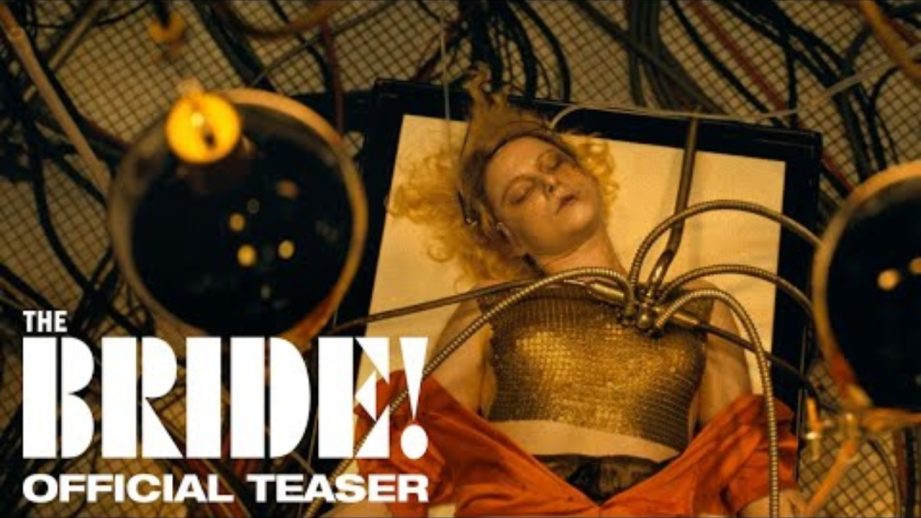
Maggie Gyllenhaal’s The Bride lands its first trailer with confidence — moody, tightly composed, and unmistakably personal. Set in a brooding 1930s Chicago, this isn’t just a rework of the Frankenstein myth. It’s something more defiant. Less about monsters, more about the people who dare to make them.
The story unfolds around a man—Frankenstein, played by Christian Bale—who isn’t chasing scientific glory but companionship. His solution? A woman brought back from the dead. But what they create together is no obedient invention. She wakes up angry. Awake. Entirely her own.
Jessie Buckley plays the Bride with a strange, magnetic stillness. There’s violence in her calm, a sense that she’s constantly reading the room for a way out—or a way through. Buckley doesn’t push too hard, and that restraint gives the character real weight. Bale matches her, dialling down the theatrics to reveal a man quietly unraveling under the pressure of his own choices.
Their connection is slow-burning, fraught, and intentionally hard to read. Not a love story in the usual sense—more like two people circling each other, unsure if they’re mirrors or threats.
Visually, the film looks sharp. Lawrence Sher’s cinematography leans into shadow and contrast without getting lost in style for style’s sake. Sandy Powell’s costuming strikes that tricky balance between period authenticity and subtle expression. And Karen Murphy’s design roots the gothic elements in something tangible—lived-in, industrial, slightly sick.
The trailer doesn’t explain much, and that’s the point. It shows just enough: glimpses of intimacy, flashes of unrest, the crackle of something political simmering beneath the surface.
The Bride won’t be a passive revival of a familiar story. It’s shaping up to be a film about autonomy, desire, and the cost of being brought into a world that never asked for you.
